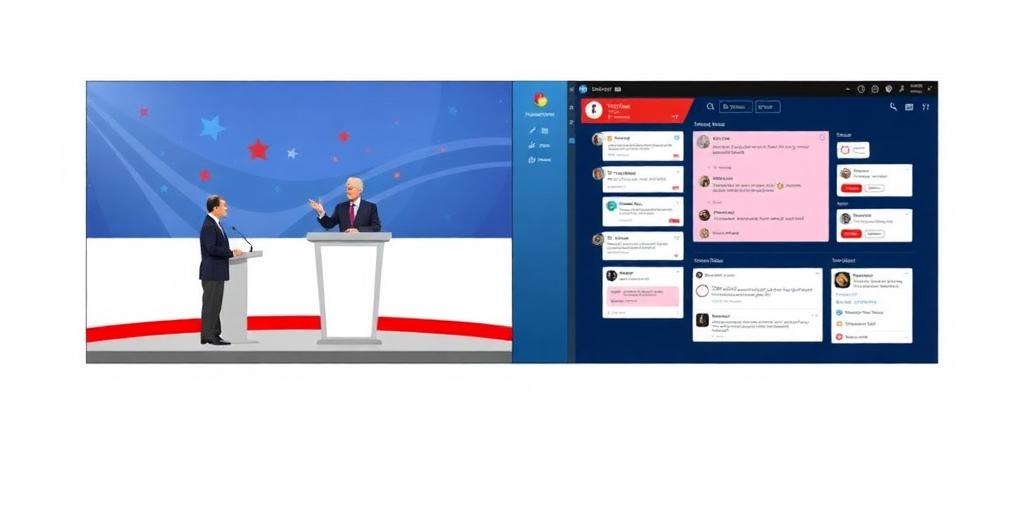The Shift to Online Political Debates
Political debates have long been a cornerstone of democratic processes, offering a platform for candidates to articulate their visions and engage with the electorate. Traditionally held in television studios or large auditoriums, these debates are now increasingly migrating online. This shift brings both opportunities and challenges, reshaping how political discourse unfolds.
Accessibility and Inclusivity
One of the most significant advantages of online political debates is increased accessibility. Online platforms can reach a far broader audience than traditional television broadcasts. Individuals who may be unable to attend in-person events due to geographical constraints, disabilities, or time limitations can participate from anywhere with an internet connection. This inclusivity extends to allowing more diverse voices to join the conversation, as online platforms can host candidates from smaller parties or independent movements who might not receive mainstream media coverage.
Interactive Engagement
Online debates also offer greater opportunities for interactive engagement. Social media platforms and live chat features enable viewers to ask questions, share opinions, and participate in real-time polls. This direct interaction can foster a more dynamic and participatory political process, giving voters a sense of involvement and ownership. However, this interactivity also presents challenges, such as managing misinformation and ensuring respectful dialogue.
Challenges of Online Platforms
Despite the potential benefits, online political debates face several challenges. One of the most pressing is the spread of misinformation and disinformation. Social media platforms can amplify false or misleading claims, making it difficult for viewers to distinguish fact from fiction. Moreover, the anonymity afforded by the internet can embolden individuals to engage in personal attacks and inflammatory rhetoric, undermining civil discourse.
Another challenge is ensuring equitable access to technology. While internet penetration rates are increasing globally, disparities persist, particularly in rural areas and developing countries. This digital divide could exclude certain segments of the population from participating in online debates, exacerbating existing inequalities.
Moderation and Regulation
Effective moderation is crucial for mitigating the risks associated with online political debates. Moderators must be adept at identifying and debunking false claims, enforcing rules of decorum, and creating a level playing field for all participants. Some platforms are experimenting with AI-powered tools to detect and flag misinformation, but these technologies are not yet foolproof. Additionally, regulatory frameworks may be needed to ensure transparency and accountability in online debates, while safeguarding freedom of expression.
The Future Landscape
The future of political debates will likely involve a hybrid approach, combining traditional formats with online elements. Television broadcasts may incorporate social media feeds and live polls to enhance viewer engagement, while online debates may adopt stricter moderation policies and verification mechanisms to combat misinformation. As technology evolves, new platforms and formats will emerge, further transforming the landscape of political discourse. Embracing innovation while addressing the challenges will be essential for ensuring that political debates remain a valuable tool for informing and empowering citizens.
In conclusion, the shift to online political debates presents both opportunities and challenges. By leveraging the potential for increased accessibility and interactive engagement while addressing the risks of misinformation and digital divides, we can create a more inclusive and informed political process. The future of democracy may well depend on it.









